
Maria Temming
Assistant Managing Editor, Science News Explores
Maria Temming is the Assistant Managing Editor at Science News Explores. Maria has undergraduate degrees in physics and English from Elon University and a master's degree in science writing from MIT. She has written for Scientific American, Sky & Telescope and NOVA Next. She’s also a former staff writer at Science News.

All Stories by Maria Temming
-
 Computing
ComputingScientists Say: Supercomputer
These ultrafast computers perform complex calculations for research on cancer, quantum physics and more.
-
 Materials Science
Materials ScienceLet’s learn about diamond
Diamond is born under extreme heat and pressure inside Earth and elsewhere in the universe.
-
 Tech
TechScientists Say: Virtual reality
Virtual reality is an immersive, 3-D artificial environment created by a computer.
-
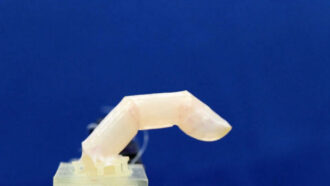 Tech
TechThis robotic finger is covered in living human skin
The advance brings super realistic cyborgs one small step closer to reality.
-
 Earth
EarthScientists Say: Fault
A fault is a crack in Earth’s crust where pieces of rock scrape past each other.
-
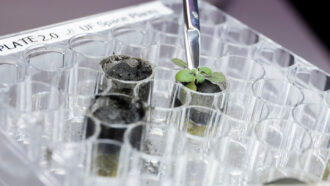 Space
SpaceThe first plants ever grown in moon dirt have sprouted
This tiny garden shows farming on the moon may be difficult, although not impossible.
-
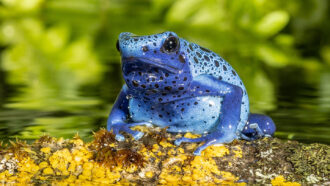 Animals
AnimalsLet’s learn about amphibians
Amphibians are named after the Greek word for “double life” because many transform from water dwellers to landlubbers as they grow up.
-
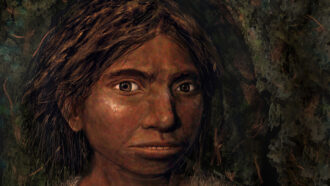 Humans
HumansScientists Say: Denisovan
The Denisovans were a recently discovered population of ancient hominids.
-
 Physics
PhysicsScientists Say: Inertia
Inertia is the tendency of objects to resist changes in their motion.
-
 Humans
HumansLet’s learn about sleep
Sleep is key for health and wellbeing — but early school start times and screen time make it harder for teens to get shuteye.
-
 Materials Science
Materials ScienceScientists Say: Silicone
Silicone is a generic term for a whole slew of humanmade polymers with many different forms and applications.
-
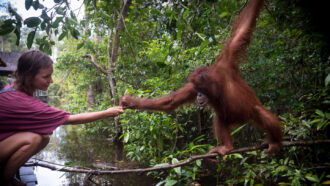 Animals
AnimalsScientists Say: Primate
Primates are mammals that tend to have big brains, forward-facing vision, fingernails and flexible hands and feet.